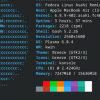Linux meets smart cards
Source: Computer World
With the development of smart cards technology mirroring that of the PC development, Linux is also beginning to appear as a contender on the smart card frontier as well. According to Wang Jiping, chief technology officer of China MobileSoft, Linux is gaining even greater traction and penetration for the embedded systems market than the PC market.
Wang, who was speaking at the recent Gemplus Developer Conference, believes that Linux will soon be appearing in every type of information device, especially small mobile devices. And as the usage of smart cards proliferates, consumers will be using portable computers with smart cards to access the Internet and to engage in ecommerce. Eventually, the smart card will be important as a means for security and as a repository for personal information. A real life example of applications that have crossed over to smart card technology with Linux is the Simputer, which is a Linux-enabled handheld device.
Wang believes that smart card-based applications in Linux computers are a very attractive proposition. The smart card can store information about a person's attributes and preferences that would allow the computer or network to automatically identify the user and configure the computer to the user's preferences.
He believes that eventually, Linux will be able to serve as the smart card chip operating system (COS). Presently, there is still no Linux COS available yet, but he believes that there are Linux developers working on it already.
He says it is a natural fit for Linux to become the COS as the random access memory (RAM) and read-only memory (ROM) in the smart card are very limited.
With the freely available Linux kernel that is small and modular by nature, it is possible to create a very small and efficient version of Linux for smart cards.









































































